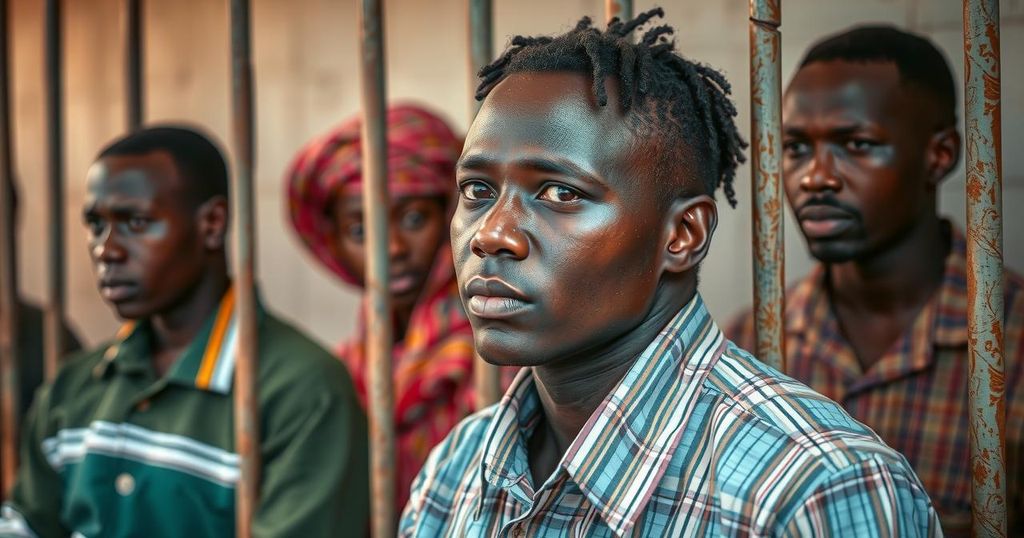UN Report Highlights Ongoing Human Rights Violations in South Sudan

A UN report reveals that arbitrary arrests and detentions in South Sudan remain critical human rights issues, affecting over 1,140 civilians between January and May 2023. The document highlights systematic abuses against women and political dissidents, particularly among vulnerable groups. Despite these challenges, the South Sudanese government shows a willingness to investigate and reform its justice system as it approaches elections.
A recent joint report issued by the UN Human Rights Office and the United Nations Mission in South Sudan (UNMISS) highlights ongoing concerns regarding arbitrary arrests and detentions in South Sudan. The report indicates that between January 2023 and May 2023, approximately 1,140 civilians were subjected to arbitrary arrest, which included at least 162 women and 87 children. This troubling pattern reflects a broader context of human rights abuses committed by both state security forces and non-state armed groups, particularly against women and marginalized groups.
The report reveals that many of the arbitrary detentions were instituted as a result of traditional practices, where women faced legal action for rejecting arranged marriages or seeking divorce. Furthermore, individuals with disabilities have been detained without charges or evidence of wrongdoing. Political figures and those engaged in political advocacy have also been vulnerable to such detentions, underscoring a pattern of suppressing political dissent and civil liberties.
UN High Commissioner for Human Rights Volker Türk expressed concern regarding the nature of these detentions, urging the authorities to release individuals wrongfully held and to take action against perpetrators of human rights violations. The report details that government forces, including the National Security Service and the South Sudan People’s Defence Forces, were primarily responsible for these arrests, along with intervention from opposing armed groups and individuals in positions of authority.
Despite these documented issues, the South Sudanese government has made efforts to enhance the human rights landscape within the nation, which includes the establishment of the Judicial Reform Committee and the deployment of mobile courts. The government has also shown a willingness to investigate claims of human rights abuses. Nicholas Haysom, the Secretary-General’s Special Representative to South Sudan, highlighted the need for accountability for those responsible for violations and urged for support and compensation for victims of such abuses. He emphasized the importance of ensuring equal participation in public affairs and protecting civil liberties as the country approaches elections.
The UN stands ready to assist South Sudan in necessary reforms, particularly regarding prison reform, which aligns with the principles endorsed within the United Nations Common Position on Incarceration. The call for comprehensive legal reform and support for victims underscores the critical transition the country must navigate to foster a more just and equitable society.
The report addressing arbitrary arrests and detentions in South Sudan is a collaborative effort between the UN Human Rights Office and UNMISS, aimed at documenting human rights violations within the country. South Sudan has faced significant challenges regarding governance and human rights following its independence in 2011. Arbitrary detentions have been identified as a persistent issue, particularly affecting vulnerable populations, such as women and politically active individuals. These practices hinder efforts for justice reform and broader progress in human rights protections, especially as the nation prepares for upcoming elections.
In conclusion, the joint UN report sheds light on the persistent issue of arbitrary arrests and human rights violations in South Sudan, calling for urgent reforms and accountability for abuses. While the government has made some strides toward improving human rights and judicial reform, significant challenges remain. Continued international support and vigilance are necessary to ensure that the rights of all citizens are respected and upheld as the country transitions toward a more democratic society.
Original Source: www.radiotamazuj.org








